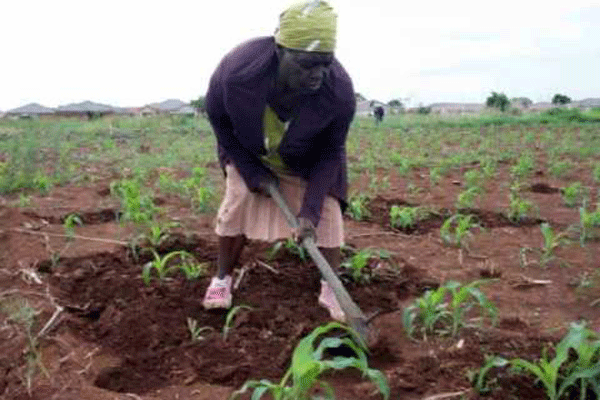
by Tim Middleton
It was a widely-held view for many years that Zimbabwe was the breadbasket of Africa. Such an epithet presented the view that Zimbabwe exported its agricultural products, in particular wheat, tobacco, and maize, all over Africa, feeding millions of others as a result. The Food and Agriculture Organisation in Zimbabwe website states that, “Agriculture is the backbone of Zimbabwe’s economy as Zimbabweans remain largely a rural people who derive their livelihood from agriculture and other related rural economic activities… Agriculture contributes approximately 17% to Zimbabwe’s GDP. As the main source of livelihood for the majority of the population, the performance of agriculture is a key determinant of rural livelihood resilience and poverty levels.”
No doubt with the sentiments expressed above in mind, in recent years the New Curriculum has introduced Agriculture as a key subject from Grade 4 upwards, seeking to ensure that all children develop a positive attitude towards agriculture and an environmental awareness and sense of responsibility, for the good of each individual as well as for the good of the country as a whole. It is all about gradual growth, careful cultivation, natural nurture and fruitful labour. For many children, a potential career and livelihood is offered in agriculture.
We would not be far wrong, however, if we were to note that there remains in the curriculum, albeit the hidden curriculum, and consequently in society, a similar subject that has been around for centuries — it is the subject of Aggro-culture, a culture of aggressiveness. While Agriculture is about growth, Aggro-culture is about destruction; just as agriculture in Zimbabwe can be divided into two parts, commercial farming and subsistence farming, so too can Aggro-culture in Zimbabwe be divided into commercial (people making a living through it) and subsistence (people surviving by it). There are within schools and within society as a whole specialists and experts in Aggro-culture, who are without knowing it teaching others about this subject.
There are various parts to Aggro-culture. There is a culture within society which sees people intimidate others. It is interesting that the word “intimidate” is close to the word “intimate”; what differentiates the two is the ID in the middle. From the position of being intimate (close, friendly, dear, cherished, warm) it does not take much for people to go and intimidate others; in fact, all it takes is for the person to put their ID at the centre of the situation, when they try to remind others of who they are — this is most commonly found when a person poses the question (though it is not meant so much as a question but as a statement), “Do you know who I am?” Such a question seeks to imply and remind the listener that the speaker is more important, is powerful, has advantage and will have his way. The person is saying, “Do not question me. Do not stand in my way. Do not dare to fail to agree to my demand. I will do what I want.”
That is one part of Aggro-culture.
Aggro-culture also comprises, in a slightly milder form, of a culture of initiation (as opposed to integration). Once again, its intention is to belittle, demean, humiliate, all in a bid to gain precedence and power over the other. It is the practice of doing to others before they do it to you. Another popular way to apply Aggro-culture is through irritation (while Agriculture uses irrigation); it has the effect of drip-drip-drip eroding away at what is in place, whereby the receiver is left defenceless, despairing and weak. Aggro-culture is stream-lined in the form of denigration. In truth, Aggro-culture comes in so many other different ways. It is all about applying force on others, be it physical, emotional, psychological, financial, social, intellectual. It is done through harassment, through threats, through blame, through taunts, through lies.
Agriculture is positive, productive, fertile; Aggro-culture is divisive, defensive, derisive. As Agriculture is all about reaping a good harvest, so Aggro-culture reaps a bad harvest. Agriculture feeds the nation; Aggro-culture kills the nation. Agriculture is for the benefit of all; Aggro-culture is for the profit of a few. Agriculture is meant to be the backbone; Aggro-culture breaks all bones. It takes years, decades even, for a tree to grow but it can take minutes and hours to cut it down. For all the good that we achieve with Agriculture it can all be stripped away by Aggro-culture. It is time we stopped promoting Aggro-culture; we must ditch it once and for all.
- Chamisa under fire over US$120K donation
- Mavhunga puts DeMbare into Chibuku quarterfinals
- Pension funds bet on Cabora Bassa oilfields
- Councils defy govt fire tender directive
Keep Reading
l Tim Middleton is the executive director of the Association of Trust Schools [ATS]. The views expressed in this article, however, are solely those of the author in his private capacity and do not necessarily represent the views of the ATS.











